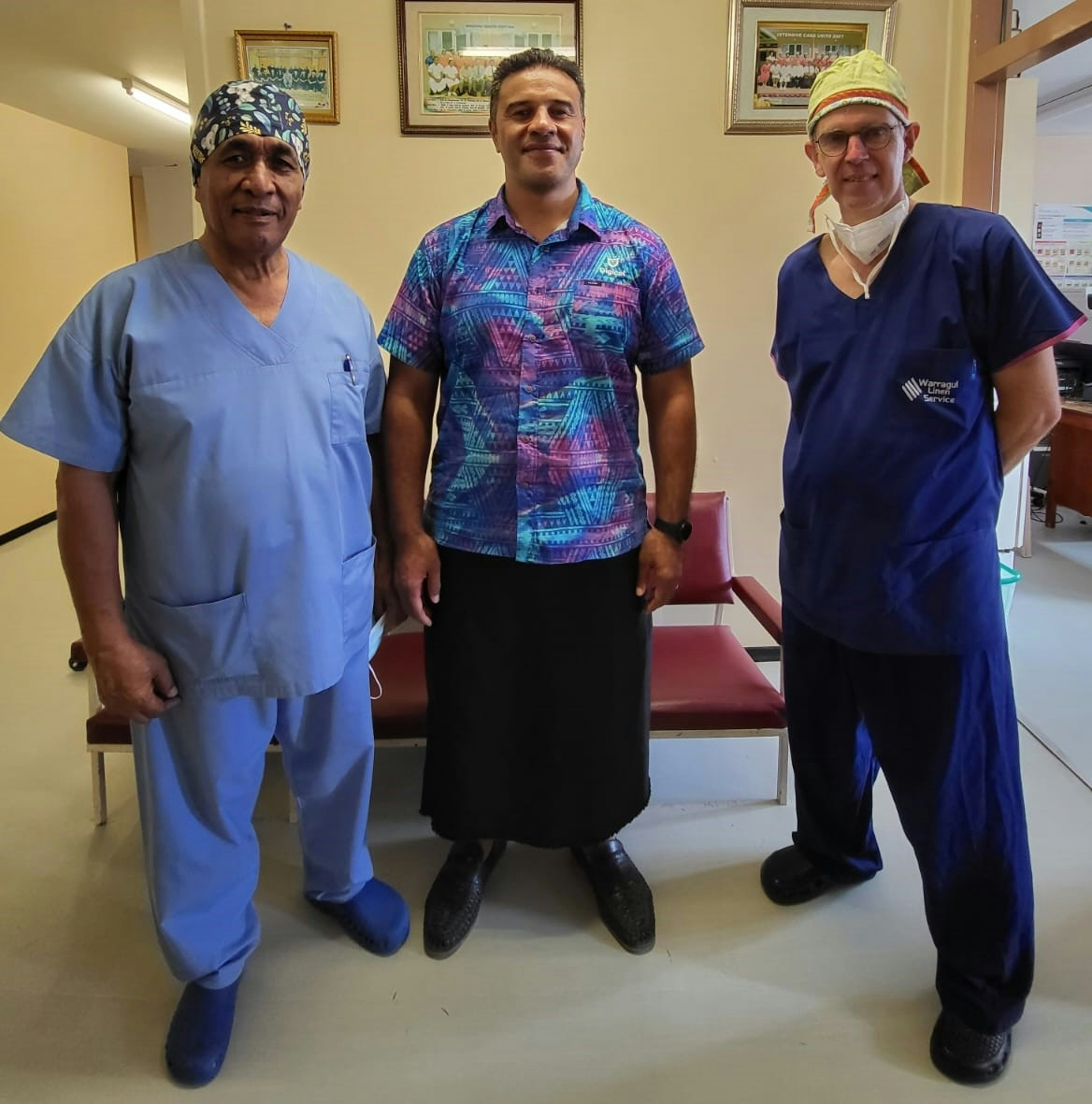Digicel Tonga funds the first Lithoclast machine in the country

Digicel Tonga has funded the first Lithoclast machine in Tonga. The machine, which is designed to disintegrate bladder stones found in human bodies, was donated to the Ministry of Health.
With the help of Lord Tangi, Associate Professor Philip McCahy, FRACS travelled from Australia with the first Lithoclast intelligent equipment to instruct and train medical professionals in operating rooms.
The Swiss Lithoclast is a remarkable device that breaks apart any stones detected in the human body. A little "bullet" is housed inside the hand piece’s smooth tube, which is propelled rapidly up and down by pressurized air that turns on and off. It strikes a probe at the end of the tube, generating a shock wave that travels along the probe. Different sized probes are used which can enter through various telescopes into the bladder, ureter, or kidney and the shock wave will pass onto any stones that are touched and break the stone up. The shocks are extremely safe and will not harm surrounding tissues. Little baskets can be used to remove broken stones from the body.
Surgery and a 2–3-week recuperation period are necessary for the treatment of an internal stone. Nevertheless, when using the Lithoclast Machine, surgery is not necessary, and patients can have their stones removed and be sent home from the hospital in only a few days. The Lithoclast device not only saves time and money but also benefits the people of Kingdom of Tonga by removing the need for them to travel abroad for surgery. When compared to conventional medical equipment, the Lithoclast machine's reusable probes can last for many years.
Digicel Tonga CEO, Anthony Seuseu, said; “We are very pleased to have invested in this great equipment to make a huge difference and improve the lives of the people and Digicel will continue to provide the community its full support in all endeavours. This donation is a testament to our commitment to the people of Tonga and our dedication to improving healthcare services in the country.”
